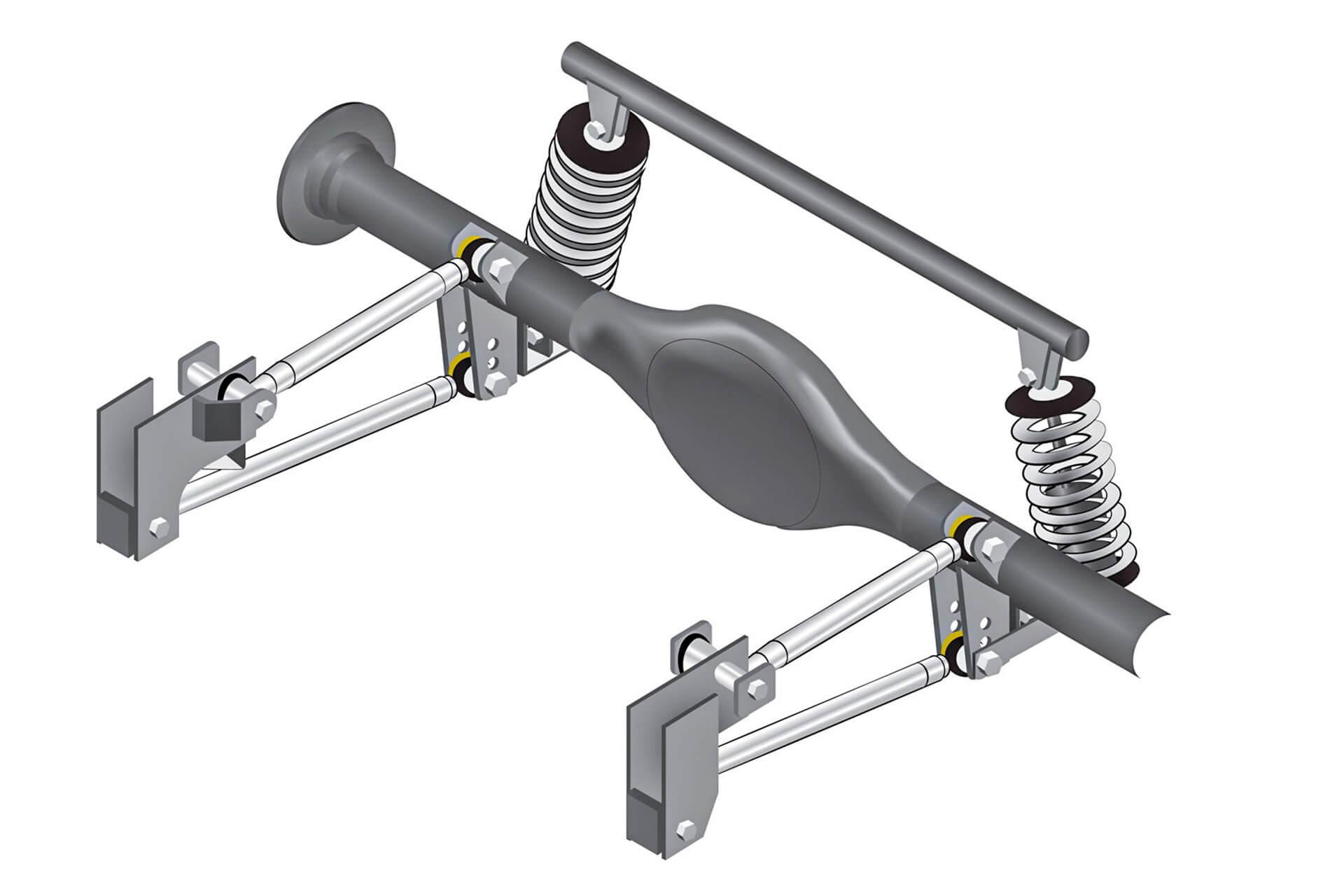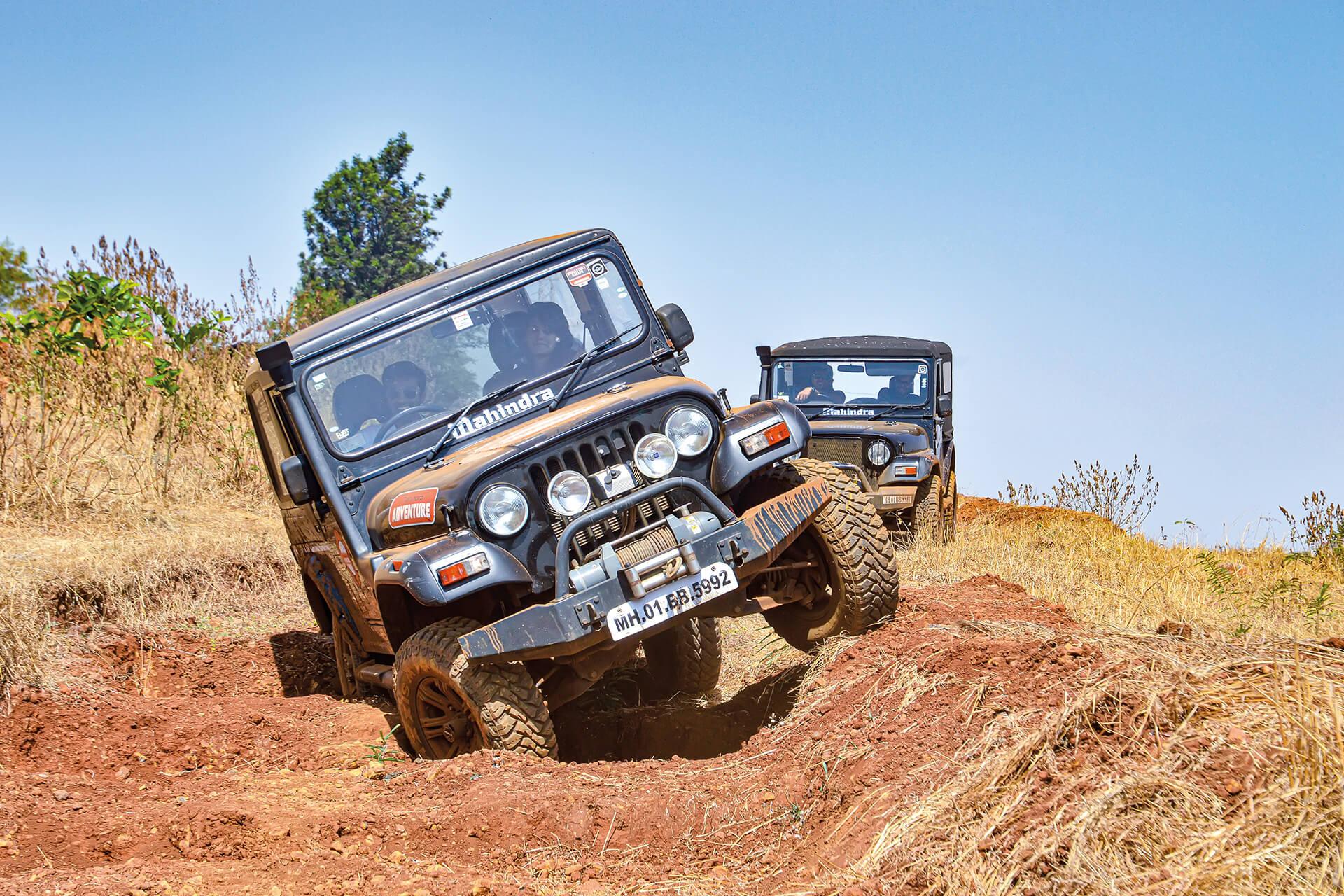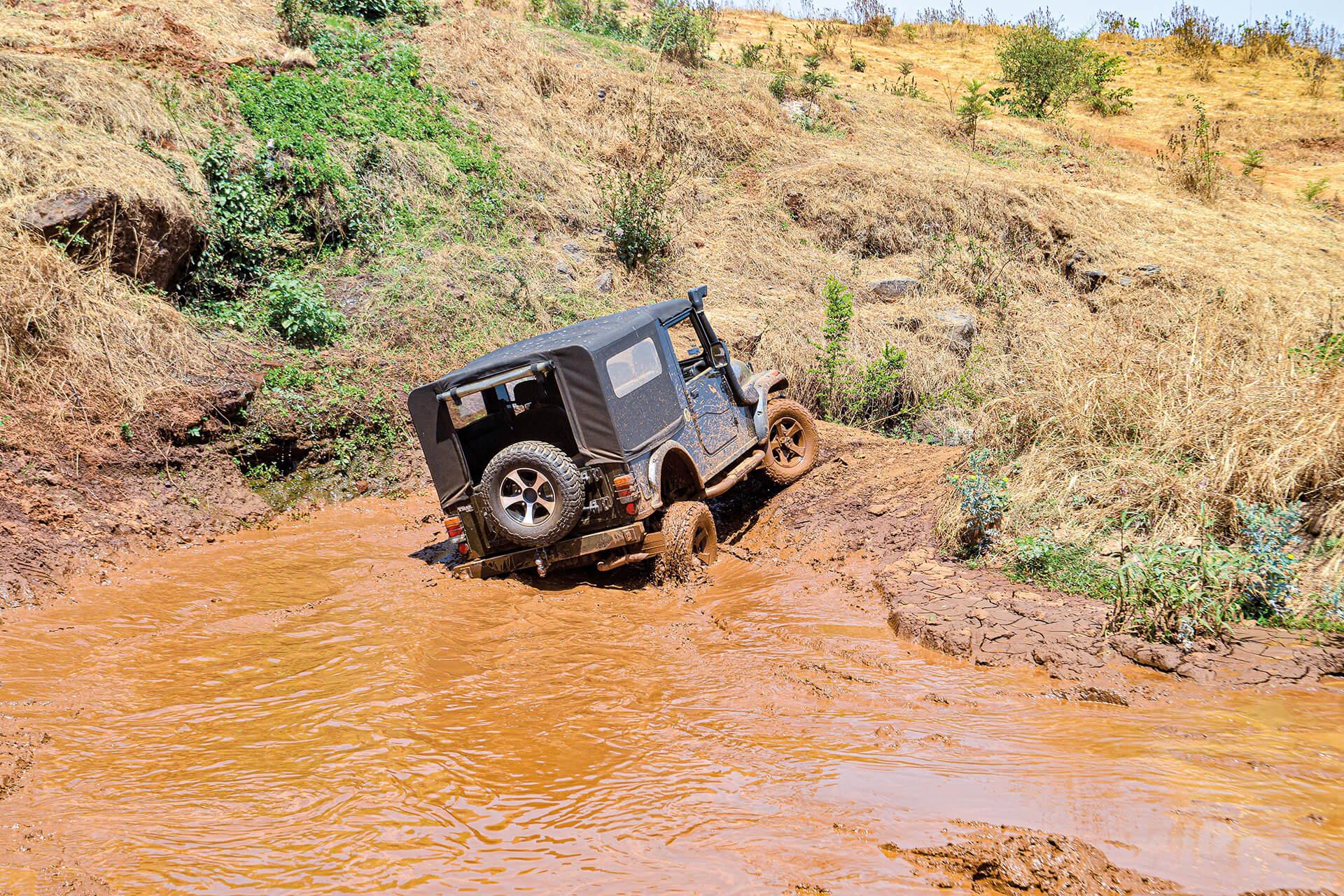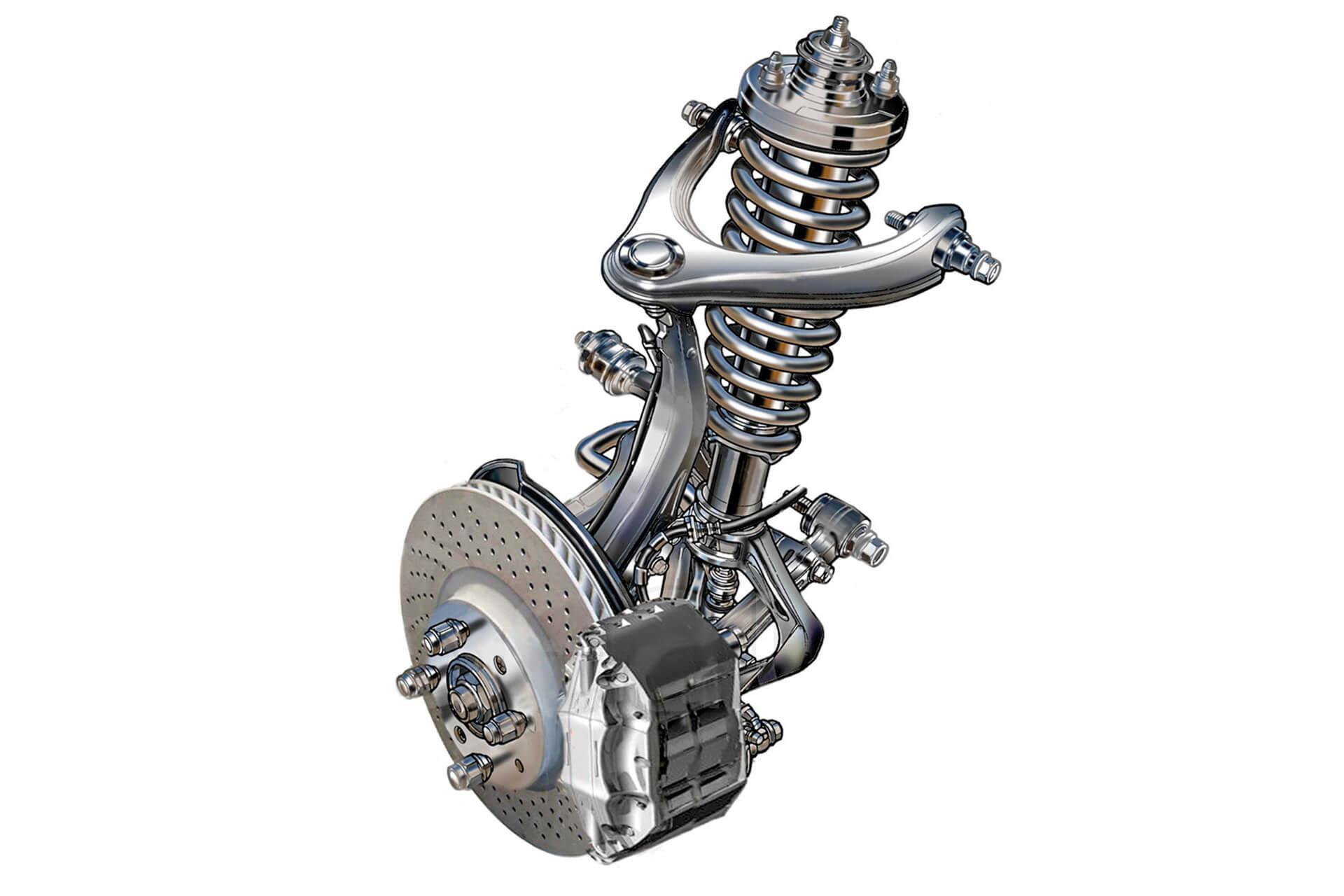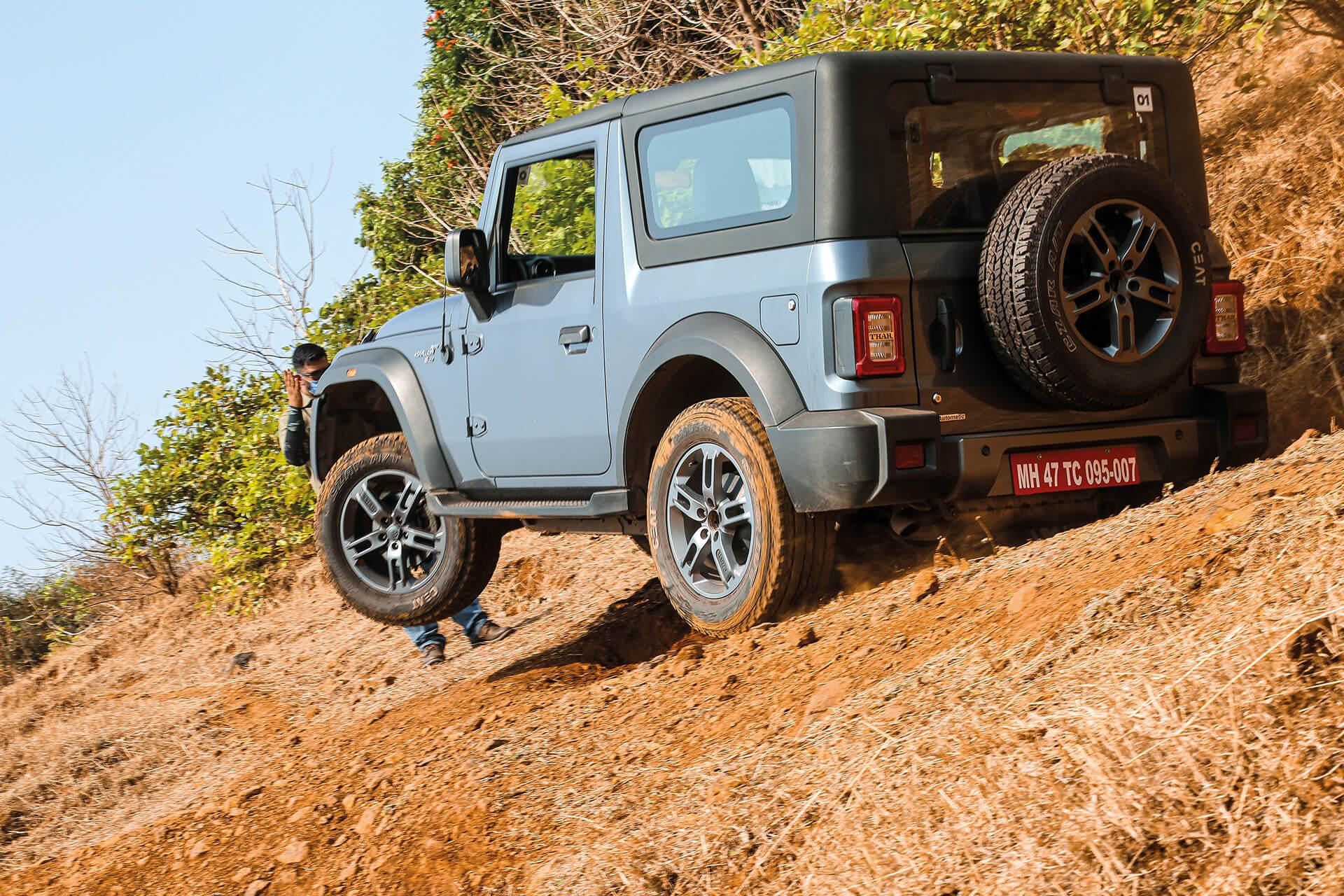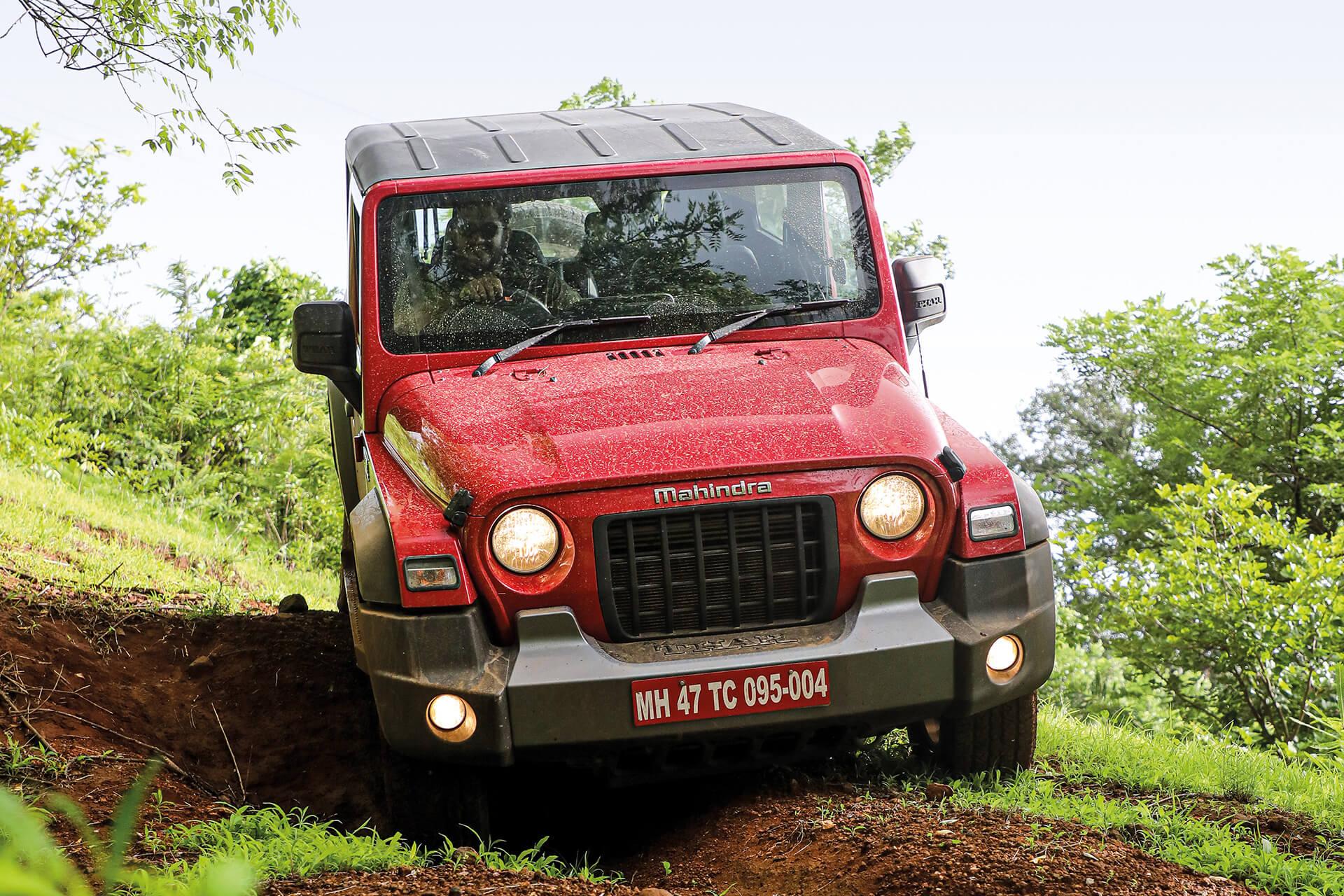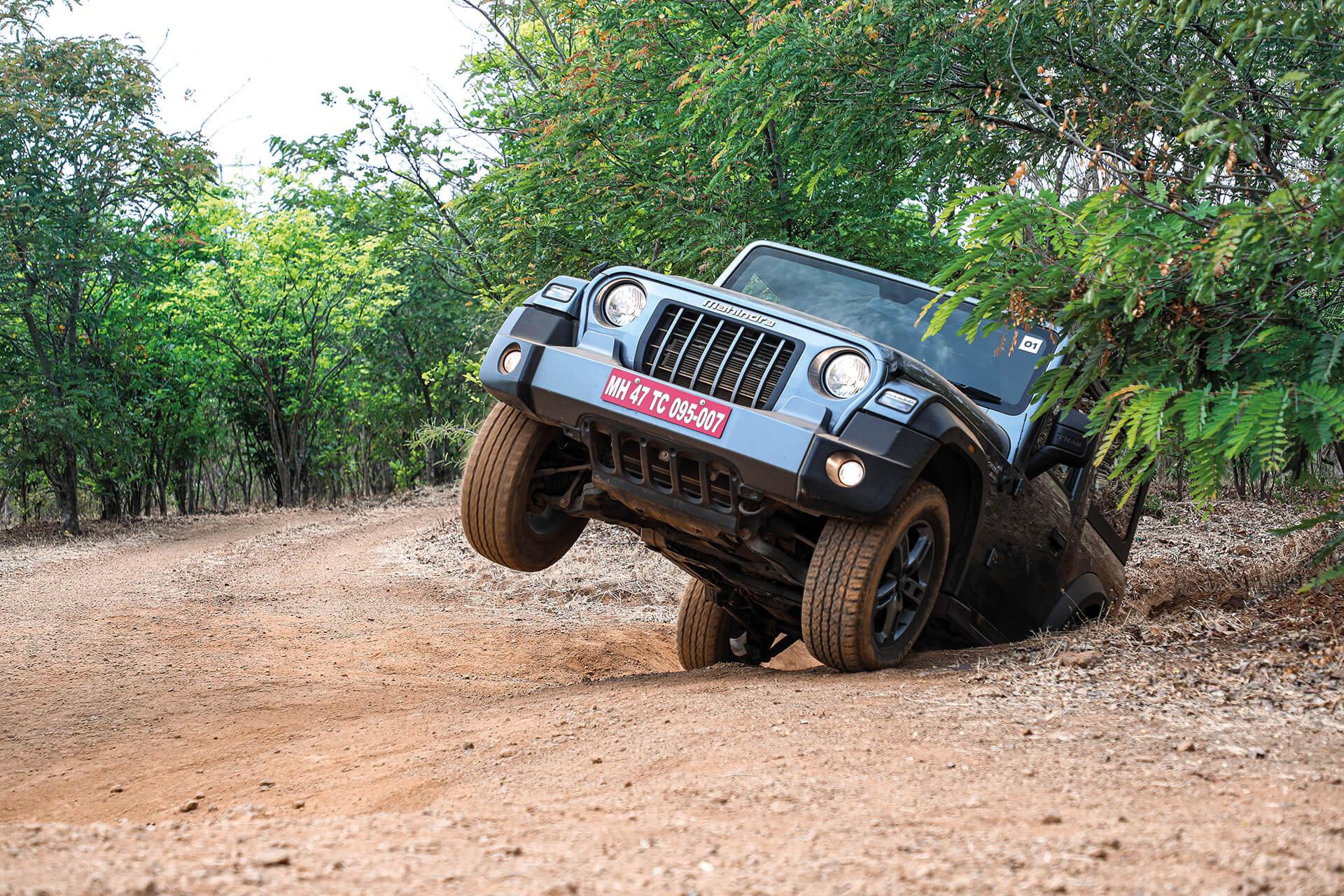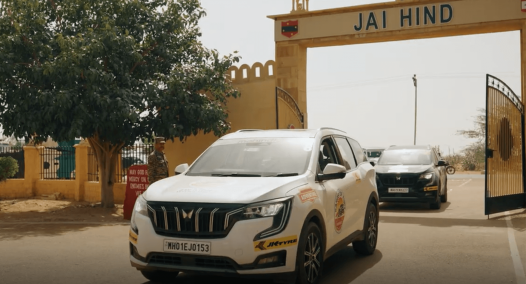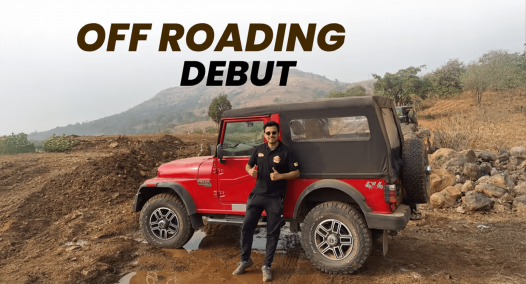Fact: Ruggedness of an independent suspension depends on its design. In fact, most of the military fast attack tactical vehicles use all independent suspension systems. This wasn’t the case some 30-40 years ago. Independent suspension aids in independent wheel travel. Leads to lesser unsprung mass and better wheel control. Does that mean solid axles can’t be tuned for ride comfort and handling? This isn’t true either. It just takes a lot more effort, money and engineering to manage that extra bulk around.
Belief: IFS leads to poor articulation in off-road conditions and hence is not suitable.
Fact: IFS by itself doesn’t articulate well compared to a solid front axle of similar configuration. However, everything depends on the intent and design. For example, an off-road buggy with long arm front independent suspension could send a regular solid axle off-roader running for cover. It’s the combined articulation between front and rear that matters. The Thar CRDe RTI (ramp travel index) score is better than any solid axled Mahindra produced until date. Hence perception is not always reality.
Belief: IFS lower control arm blades create a wall and hinder progress in mucky conditions. Hence not good for off-roading.
Fact : Again, it’s a combination of factors at play. Depends on how much the lower arm is dropping below the sub-frame as per the design. In fact, poorly designed fat solid front axles with big differentials and smaller tyres could make a bigger wall of resistance. Variable ground clearance with softly sprung IFS is a concern though.
Belief: IFS is not suitable for hardcore rock crawling.
Fact: This is true. There’s no denying the fact that long travel coil sprung solid axles rule where boulder crawling is concerned. Solid axles, long travel shocks, big tyres and differential locks on each axle is an orgasmic combination for a hardcore off-roader. Solid axles are more abuse friendly and can take a hit and continue. IFS struggles here. One needs to decide how much of hardcore rock crawling one does every day. The choice could be made based on that.
It's clear from the above that with advanced traction control systems in place and overall improvement in the robustness of the design, an IFS and solid rear axle with long travel coil springs combination comes across as a great compromise between ride, handling and off-road capability. The Thar 2020 is a fine example of this.
Why do traditional off roaders and overlanders cry foul over independent suspension?
The reason is simple, they are resistant to change as they simply can’t take chances out there in the wilderness. The peace of mind that comes from a system that’s been tested for years cannot be challenged. Solid axles do not need expensive bush and arm replacements. Fewer the linkages, the better it is. Alignment is not needed as often as an independent suspension would require. Cost of maintenance is lower and it’s more abuse friendly as well. Solid axle suspension systems are more modification friendly. Above all it’s about a feeling of invincibility and visual drama that only a few would understand.
Did someone just say independent rear suspension for the next generation Thar? No, not again!

